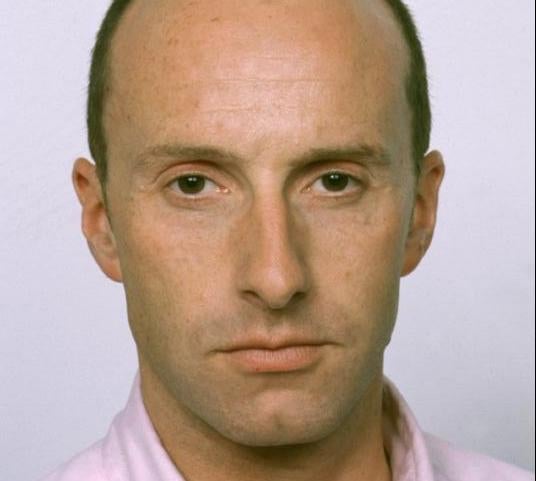
The BBC’s World News editor Jon Williams pays tribute to the corporation’s ‘foreign legion’ of correspondents who brave dangerous conditions to bring us first-hand accounts of the stories on their patch.
Every night at 10pm, a shaft of light illuminates a corner of London’s night sky. Beaming from a 30 foot glass cone on top of the BBC’s Broadcasting House, the structure – ‘Breathing’by the Spanish artist Jaume Plensa – salutes the hundreds of journalists killed doing their job, many in conflicts and wars around the globe.
The BBC doesn’t have ‘war correspondents’ – it’s not something you can apply for, there’s no advert in the paper. That’s because the BBC doesn’t want to just parachute people into conflicts. From Johannesburg to Jerusalem, Brussels to Beijing, in more than forty locations around the World, the BBC’s foreign legion live and breathe the stories they report on.
It’s why our people have lived in Afghanistan since 1988, long before the Taliban and the US led invasion. It’s why the BBC also has a base in New York. So when, on a September day, two planes crashed into the World Trade Center half a world away – and the finger pointed back to Afghanistan – the BBC was uniquely placed to report the story.
On 11 September, 2001, BBC New York correspondent Steve Evans had an eye-witness location like no other. He’d arranged a breakfast meeting in the restaurant at the top of the World Trade Center North tower for that very morning. Very fortunately his guest was late and Steve was waiting in the lobby when the first plane struck. His subsequent reporting of the attacks was able to capture what was happening in ways others couldn’t.
Weeks later, in Afghanistan, as US Forces targeted the Taliban, Kabul correspondent William Reeve was live in vision on BBC World News, when a rocket landed close to the BBC bureau, knocking him off his chair – a graphic illustration, on air, demonstrating to millions the might of the US Military raining down on Afghanistan.
Often, the heroics are off-screen. Today, broadcasters and viewers alike think nothing of accessing pictures or data on mobile phones – but just a few short years ago, technology was much more primitive.
During that same conflict in 2001, the terrain was too difficult for the BBC’s engineers to drive the satellite vehicles over the mountains of Northern Afghanistan.
So instead – to ensure that John Simpson could report on his march to ‘liberate’ Kabul – they chartered a ‘land train’ of donkeys to carry the dozens of boxes of equipment necessary.
Eighteen months later, during the Iraq War, technology had moved on. BBC reporters were embedded with US and UK troops as they headed towards Baghdad. No time for donkeys or satellite trucks – instead, reporters and crews were forced to shelter beneath armoured vehicles four hours at a time, as they sent their reports from the Iraqi desert via early generation satellite mobile phones – all to ensure audiences in the UK and beyond could witness events being conducted in their name.
While others have left Iraq in the years since, the BBC is still there – our Baghdad correspondent Gabriel Gatehouse is one of the few British journalists based in the city. In Paul Greengrass’s recent film, ‘Green Zone”, Matt Damon is seen hanging round by the pool inside one of Saddam’s former Palace’s, surrounded by American contractors sunbathing and drinking. Life for the BBC team is a far cry from Hollywood, or the glamour of William Boot, hero of Evelyn Waugh’s ‘Scoop”. They live in a secure compound, outside the capital’s Green Zone – their electricity is intermittent, their freedom to come and go as they please restricted. And there’s the ever-present danger of living in what is still one of the world’s most dangerous cities.
Three years ago this month, my colleague Alan Johnston was finally freed, after 114 days in captivity having been kidnapped in Gaza. Earlier this year, he returned to the Middle East for the first time since his release, to live again among the Palestinian People to report for a BBC documentary. He is of the BBC’s ‘foreign legion’; a band of brothers – and sisters – committed to telling stories they believe the world needs to know about, passionate and impartial.
Email pged@pressgazette.co.uk to point out mistakes, provide story tips or send in a letter for publication on our "Letters Page" blog
